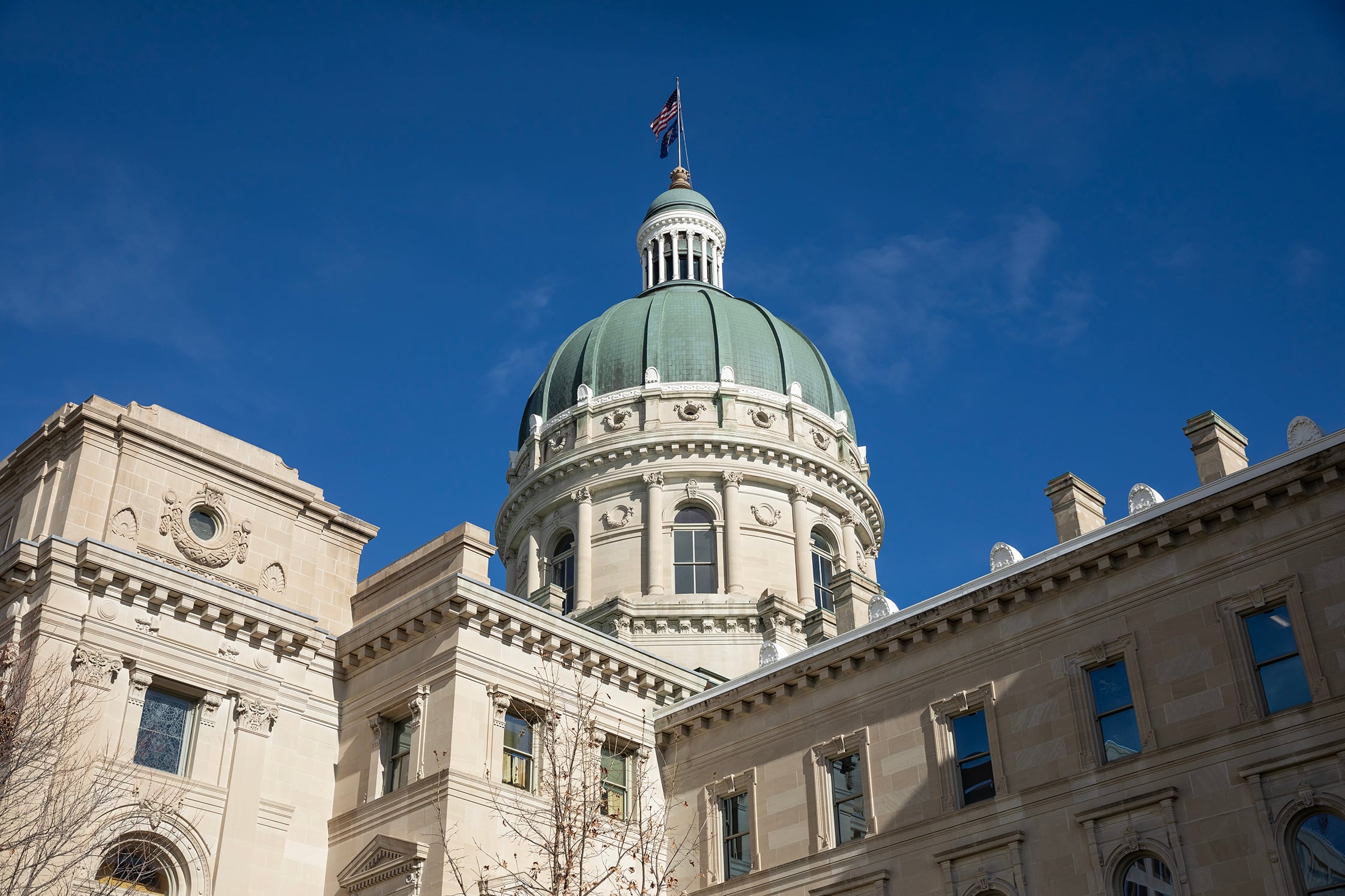Sign up for Chalkbeat Indiana’s free daily newsletter to keep up with Indianapolis Public Schools, Marion County’s township districts, and statewide education news.
Update: The Indiana legislative session ended on March 8, 2024. Here are the education bills that did and didn’t pass.
Lawmakers have altered bills originally designed to recognize Indiana schools and students for civic education to instead cover chaplains in schools, internet safety, and student discipline.
Previous versions of Senate Bill 211 and House Bill 1137 included a requirement for Indiana to establish a civics seal recognizing schools, students, and teachers for excellence in civics at a time when Indiana’s civic participation is declining. The bills would have also brought civic education to the earliest grades through reading materials.
But lawmakers have dramatically rewritten the bills during the legislative process, which is nearing its end on March 14.
House Bill 1137 began as a bill to require schools to release students for religious instruction at their parents’ request, which House lawmakers amended early in the session to include a new civic seal recognition.
But after the bill passed the House, lawmakers on the Senate Education Committee stripped the bill of language related to civics, and added instead a provision to allow chaplains to serve in schools. Senate Bill 50, which passed the Senate but has yet to be heard in the House, includes similar language about chaplains.
The House bill’s provision on chaplains has also been changed by senators to address concerns that it allowed children to receive religious guidance without their parents’ knowledge. In the most up-to-date language, only emancipated minors and parents of unemancipated minors could give permission for religious instruction. Chaplains would otherwise have to provide secular guidance only.
Another amendment to House Bill 1137 adopted by senators would require chaplains to disclose to parents any communication with their students, at parents’ request.
But critics, including the ACLU and Democratic Sen. J.D. Ford, still say school corporations that employ chaplains could run the risk of violating the U.S. Constitution’s establishment clause.
Meanwhile, House lawmakers changed Senate Bill 211 to remove the civic seal language. Instead, they added a provision to require the Indiana Department of Education to establish a civics proficiency designation for schools “to further develop student understanding of civil society, constitutional government, and the democratic process.”
The House has also amended the bill to require the Department of Education to approve an internet safety curriculum on cyberbullying and dangerous online behavior. Another amendment would allow school personnel to remove disruptive students and bar them from returning to the classroom.
A House amendment by Rep. Ed DeLaney, an Indianapolis Democrat, on Monday would have banned Attorney General Todd Rokita from operating the Eyes on Education portal — a website for parents and others to file complaints against teachers and schools over lessons on politics, race, gender, and sexuality.
Another amendment by Democratic Rep. Carey Hamilton from Indianapolis would have required members of the General Assembly to spend time shadowing public school teachers.
These amendments from DeLaney and Hamilton were rejected for not being germane to the bill.
“Every session, we pass new laws, requirements, and restrictions that impact teachers in their work with students and I think it’s incredibly important for us to be informed about what their work looks like,” Hamilton said.
House Bill 1137 and Senate Bill 211 are advancing to a final reading in their respective chambers. If they pass, they’ll head to the governor’s desk. You can track each bill on the General Assembly website.
Correction: Feb. 27, 2024: A previous version of this story referred to J.D. Ford as a state representative. Ford is a state senator.
Aleksandra Appleton covers Indiana education policy and writes about K-12 schools across the state. Contact her at aappleton@chalkbeat.org.





